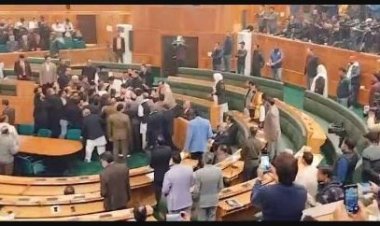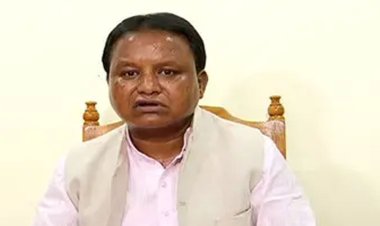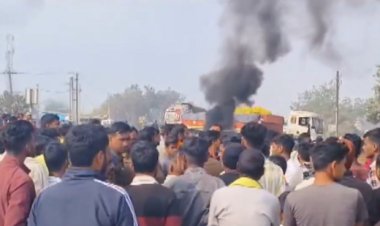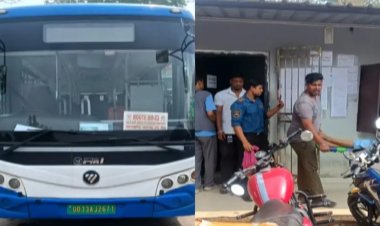"Chhatrapati Shivaji's 'Bagh Nakh' Returns to India After 350 Years"
The loan of the legendary weapon comes ahead of the assembly election in Maharashtra and is expected to be a talking point in favor of the ruling alliance.
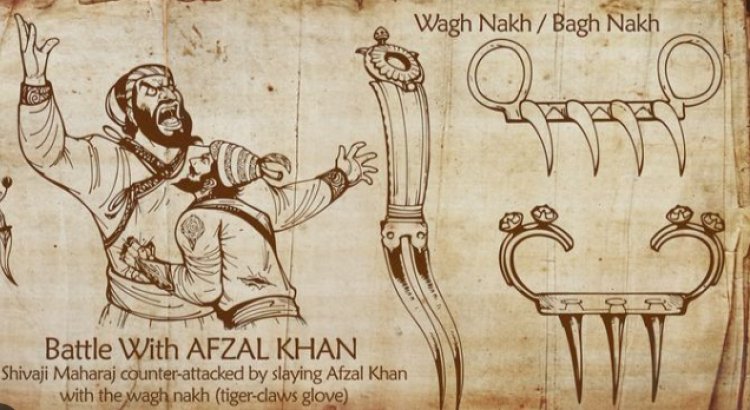
The tiger claw believed to have been used by Maratha emperor Chhatrapati Shivaji to kill General Afzal Khan has returned to Maharashtra after 350 years. The state government has borrowed it from London's Victoria and Albert Museum for three years and put it on display in Satara, western Maharashtra. The weapon, now equipped with a bulletproof cover, has been placed in a museum in Satara under tight security for seven months.
Chief Minister Eknath Shinde, his Deputy Devendra Fadnavis, and other leaders attended the inauguration ceremony.
In 1649, Shivaji, who established the Maratha empire after a successful rebellion against the Bijapur Sultanate, met with Bijapur general Afzal Khan. Suspecting treachery during the proposed unarmed meeting, Shivaji wore a chain-mail shirt and concealed a bagh nakh in his right hand. When the two leaders met and embraced, Afzal Khan attempted to stab Shivaji with a knife, prompting Shivaji to use the bagh nakh to kill him. The incident occurred at the foot of Pratapgarh fort, located in present-day Satara.
The loan of this historic weapon comes ahead of the assembly election in Maharashtra and is expected to be a significant talking point in favor of the ruling alliance. Shivaji is an iconic figure in Maratha history and is particularly revered by the undivided Sena. The loan of the Bagh Nakh is anticipated to bolster the political standing of Chief Minister Eknath Shinde, who seeks to carry on the legacy of the late Balasaheb Thackeray, the founder of Shiv Sena and the father of Uddhav Thackeray.
The upcoming assembly election is a matter of concern for the ruling alliance, which has faced strong opposition from the Maha Vikas Aghadi. In the 2019 Lok Sabha elections, the BJP, in alliance with the undivided Sena, claimed victory in 23 of the 25 seats it contested in Maharashtra. However, in the subsequent election, the BJP won only nine seats, while its allies, the splinter units of the Sena led by Eknath Shinde and NCP led by Ajit Pawar, managed to secure eight seats combined. On the opposing side, the Congress won 13 seats, Uddhav Thackeray's faction of Sena won nine, and Sharad Pawar's faction of NCP secured eight seats.






